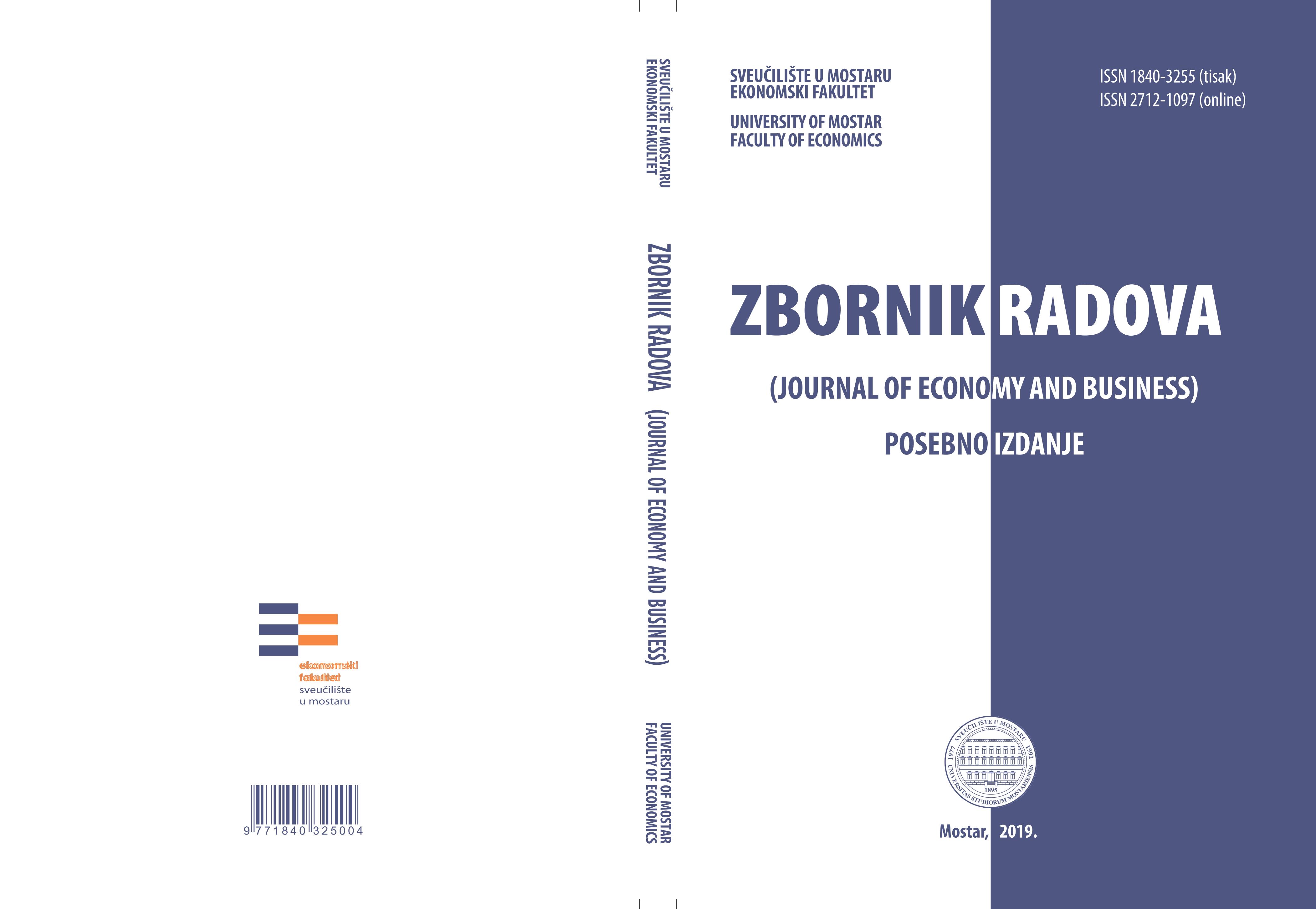ISTRAŽIVANJE RAZLIKA U UČINKOVITOSTI I FINANCIJSKOM STANJU PRORAČUNSKIH KORISNIKA U REPUBLICI HRVATSKOJ
DIFFERENCES IN EFFECTIVENESS AND FINANCIAL CONDITION OF BUDGET USERS IN CROATIA
Author(s): Ana JežovitaSubject(s): Public Administration, Public Finances, Fiscal Politics / Budgeting, Accounting - Business Administration
Published by: Ekonomski fakultet, Sveučilište u Mostaru
Keywords: budget users; effectiveness and efficiency; financial condition; financial indicators; data envelopment analysis; development index;
Summary/Abstract: Central, regional and local government units, through their harmonized actions, should strive for efficiency and effectiveness in their activities, which will result in adding value to national wealth and increasing the average standard of living. Unlike profit-oriented systems, the primary goal of budget users is earmarked, efficient and effective distribution of revenues. Activities of budget users should be aimed at effectiveness, sustainability, and continuity of the system. The OECD has an important role in accomplishing the objectives of public sector units by its principles of budgetary governance. Pillars of modern budgetary governance are principles of the transparent and accountable approach to planning and achievement of objectives, and integrity. Accordingly, the research problem includes the question of how the performance and financial condition of budget users can contribute to national wealth. The research objective is to analyse and evaluate the performance and financial condition of budget users in Croatia at local, regional and central government level for the years 2011 to 2017. The result may contribute to detecting problem areas of budget users’ governance politics and finding ways of solving them. Additionally, the results may help as a starting point for more detailed research on specific areas in which budget users are able, by its politics and earmarked distribution of revenues, to have a greater impact on welfare in Croatia. The analysis includes 80 budget users for the seven-year period. The data were obtained by e-mail from Annual Financial Reports Registry managed by Financial Agency, and it was processed by using descriptive statistics, correlation analysis, a non-parametric test (Kruskal-Wallis test) and data envelopment analysis. The results of the research indicate that there are statistically significant differences in the performance and financial condition of budget users at the local, regional and central government level. Additionally, the results show that financial ratios give a more detailed evaluation of performance and financial condition compared to a single efficiency indicator which is the result of data envelopment analysis. The results indicate that larger budget users have better performance and financial condition compared to smaller units. Finally, the research results show that there is no positive correlation between the level of efficiency and development index of the geographical area of activity of the budget user.
Journal: Zbornik radova
- Issue Year: 2019
- Issue No: Special
- Page Range: 7-37
- Page Count: 31
- Language: Croatian

